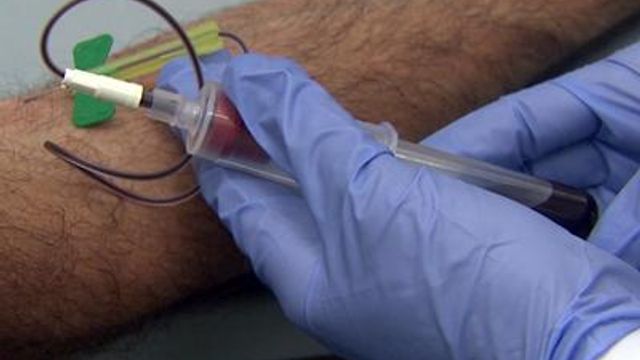Health Team
Researchers study single blood test for artery plaque build-up
Two Duke Heart Center cardiologists were part of a collaborative research team with investigators in Germany and California who studied whether a single blood test could identify plaque build-up.
Posted — UpdatedDURHAM, N.C. — Doctors use stress tests, echocardiograms and cardiac catheterization to look for plaque build up in the arteries that feed the heart. A simple blood test would be less invasive and less risky, or one could be used in combination with some of those tests without requiring all of them.
Duke Heart Center cardiologists Dr. William Kraus and Dr. Kristin Newby were part of a research team with investigators in Germany and CardioDX, a company in California, who studied a single-blood-test method to identify plaque build-up.
In small populations of patients who'd undergone coronary catheterization, researchers used a single blood test to identify 14 genes that were sensitive to inflammation that occurs when plaque builds up inside coronary arteries. The gene expression may indicate the presence and severity of coronary artery disease.
"That really is exciting because it is then potentially a test that we can evolve and use in clinical practice to save patients an invasive procedure,” Newby said.
Certain factors can turn genes on or off.
“And so what we looked for was genes that are up-regulated or turned on in relation to the presence of coronary disease,” Newby said.
There is currently a larger study to confirm the results they've seen in previous trials. Newby believes it won't take long. If the results are confirmed, the test could be seen in clinical use in about a year.
• Credits
Copyright 2024 by Capitol Broadcasting Company. All rights reserved. This material may not be published, broadcast, rewritten or redistributed.





